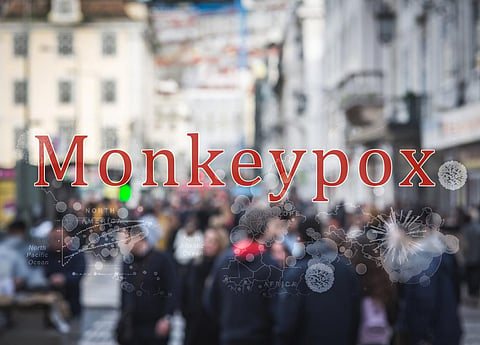Monkeypox continues to spread in non-endemic countries, no deaths reported yet
The ongoing monkeypox outbreak in non-endemic countries has experts scrambling to figure out what has caused the most geographically widespread resurgence of the virus in half a century.
Some 92 confirmed cases and 28 suspected cases have been reported from 12 member states across three regions of the World Health Organization (WHO), the United Nations health agency noted. No associated death has as yet been reported.
“Epidemiological investigations are ongoing, however, reported cases thus far have no established travel links to endemic areas,” said WHO.
Cases have mainly — but not exclusively — been identified among men who have sex with men (MSM) seeking care in primary care and sexual health clinics, according to the global health body.
The caseload is likely to increase as surveillance efforts are ramped up in other parts of the world, it added.
Australia, Belgium, Canada, France, Germany, Italy, Netherlands, Portugal, Spain, Sweden, the United Kingdom and the United States are the non-endemic countries to report monkeypox cases.
The disease is endemic in Benin, Cameroon, the Central African Republic, the Democratic Republic of the Congo, Gabon, Ghana (identified in animals only), Ivory Coast, Liberia, Nigeria, the Republic of the Congo, Sierra Leone and South Sudan, according to WHO.
All the cases identified so far belong to the West African clade of monkeypox — the less deadly strain — with a fatality rate of 3.6 per cent, which is considerably lower than 10.6 per cent of the Congo Basin clade.
“Monkeypox may be severe in children, pregnant women or persons with immunosuppression due to other health conditions,” WHO mentioned.
That none of the patients have any travel history to an endemic area has experts worried, indicating the possibility of local transmission.
However, genome sequencing of a sample from Portugal found many similarities with a strain transported from Nigeria to UK, Israel and Singapore in 2018 and 2019.
Appropriate public health response for now includes extensive case finding and contact tracing, laboratory investigation, clinical management and isolation provided with supportive care, WHO stressed. Genome sequencing to assess which strain is responsible for the outbreak is also a crucial containment effort, it added.
There is only one monkeypox-specific vaccine (MVA-BN) and treatment (tecovirimat) approved in 2019 and 2022 respectively, but are not yet widely available.
The smallpox vaccine is 85 per cent effective, studies showed. But there is a caveat: Vaccination against the disease was halted after it was eradicated in the 1980s.
This means that currently only those above 40-50 years of age have the cross-protective immunity against monkeypox, acquired from the smallpox vaccine.
“Deployment of pharmaceutical countermeasures including specific antivirals can be considered under investigational or compassionate use protocols, particularly for those who have severe symptoms or who may be at risk of poor outcomes,” said WHO.
Some countries may hold smallpox vaccine products, which can be considered for use according to national guidance, the global health agency observed.


